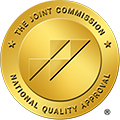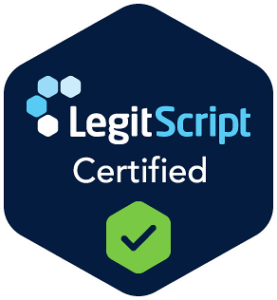At Georgia Sky, we understand that overcoming oxycodone addiction begins with professional support. Our outpatient detox programs are designed to help individuals safely manage withdrawal symptoms, laying the foundation for long-term recovery. While detox is a crucial first step, addiction treatment is an ongoing process that requires comprehensive care and a commitment to healing. If you or a loved one is ready to take the first step toward a healthier future, we’re here to help every step of the way.
What is Oxycodone?
Oxycodone is a prescription opioid medication commonly used for managing moderate to severe pain. It works by altering how the brain and nervous system perceive pain, providing relief for patients with chronic conditions, post-surgical pain, or injuries. Classified as a controlled substance due to its high potential for addiction and abuse, oxycodone is often prescribed under strict guidelines. It is available in various forms, including tablets, capsules, and extended-release formulations, and is found in combination medications like Percocet or OxyContin. While effective for pain management, oxycodone can lead to dependency and significant health risks if misused.
What are the Signs and Symptoms of Oxycodone Addiction?
- Drowsiness or sedation
- Constricted pupils
- Slowed breathing
- Nausea or vomiting
- Itching or flushed skin
- Mood swings or irritability
- Anxiety or depression
- Difficulty concentrating
- Obsessive thoughts about obtaining or using oxycodone
- Doctor shopping or forging prescriptions
- Neglecting responsibilities at work, school, or home
- Withdrawing from family and friends
- Engaging in risky behaviors to obtain the drug
If you or someone you know is experiencing these symptoms, it’s important to seek help as soon as possible. Early intervention can prevent further harm and increase the chances of long-term recovery from oxycodone.
Frequently Asked Questions About Oxycodone Rehab
The duration of oxycodone rehab varies depending on the individual’s needs, the severity of addiction, and the type of program. Detox may last from a few days to a week, while comprehensive rehab programs can range from 30 days to several months.
Rehab typically begins with a thorough assessment, followed by medically supervised detox to manage withdrawal symptoms. After detox, individuals participate in therapy, counseling, and educational sessions to address the psychological aspects of addiction and develop coping skills.
Oxycodone withdrawal can be uncomfortable and, in some cases, dangerous without medical supervision. Along with common symptoms like nausea, fatigue, and anxiety, some individuals may experience severe complications such as intense muscle pain, rapid heart rate, high blood pressure, and difficulty breathing. Psychological symptoms, including severe depression, paranoia, or hallucinations, can also occur. If not properly managed, dehydration and electrolyte imbalances from persistent vomiting or diarrhea can become life-threatening. For these reasons, seeking medical supervision during withdrawal is essential
Detoxing at home is typically not recommended due to the risk of severe withdrawal symptoms and potential complications. However, mild cases might be manageable at home with proper support, and consulting a healthcare professional to assess the severity of addiction is crucial. Regardless of whether you choose an inpatient or outpatient solution, a professional detox program will provide medical monitoring and support to manage symptoms and reduce the risk of relapse.
The success rates of oxycodone rehab can vary depending on numerous factors, including the individual’s level of commitment, the quality of the treatment program, and the presence of underlying mental health conditions. Studies indicate that comprehensive, evidence-based rehabilitation programs that combine medical detox, behavioral therapy, and ongoing support can lead to significant success. Though exact percentages can differ, a personalized and well-structured rehab approach significantly improves the chances of long-term recovery from oxycodone addiction.
Benefits of Outpatient Oxycodone Rehab
- Flexibility and Convenience: Clients can attend treatment sessions while continuing to work, attend school, or care for family members.
- Maintaining Daily Responsibilities: Outpatient programs allow individuals to fulfill their personal and professional obligations during recovery.
- Support Systems: Clients remain connected to their support networks, including family and friends, which can enhance motivation and accountability.
- Aftercare Planning: Outpatient rehab includes ongoing support and resources to help clients maintain sobriety after completing the program.
What to Expect During Oxycodone Detox and Rehab
Initial Assessment and Individualized Treatment Planning:
The recovery process begins with a comprehensive assessment to evaluate the individual’s medical history, substance use patterns, and personal goals. This information is used to create a personalized treatment plan.
Detox Process and Withdrawal Management:
During opioid detox, clients are closely monitored by medical professionals who provide medications and support to manage withdrawal symptoms. The goal is to ensure safety and comfort while the body adjusts to the absence of oxycodone.
Ongoing Therapy and Relapse Prevention:
After detox, clients participate in individual and group therapy sessions to address the psychological aspects of addiction. Relapse prevention strategies, coping skills, and stress management techniques are taught to help clients maintain long-term sobriety.
Types of Oxycodone Addiction Treatment Programs
Inpatient vs. Outpatient Rehab:
Inpatient rehab involves staying at a treatment facility for the duration of the program, providing 24/7 support and a structured environment. Outpatient rehab allows individuals to live at home while attending scheduled treatment sessions, offering greater flexibility for those with work or family commitments.
Medical Detoxification:
Medical detox is the first step in most oxycodone rehab programs. It involves supervised withdrawal in a safe environment, with medications and medical care to manage symptoms and prevent complications.
Medication-Assisted Treatment (MAT):
MAT combines behavioral therapy with medications such as buprenorphine or methadone to reduce cravings and withdrawal symptoms. MAT is an evidence-based approach that improves treatment outcomes for opioid addiction.
Behavioral Therapies and Counseling:
Therapies such as cognitive-behavioral therapy (CBT), motivational interviewing, and group counseling help individuals understand the root causes of addiction, develop coping strategies, and build a support network for recovery.
Georgia Sky Outpatient Detox: Oxycodone Rehab Solutions
Unique Features of Georgia Sky Outpatient Detox:
- Flexible Scheduling: Treatment sessions are scheduled around work, school, and family commitments.
- Medical Supervision: Clients receive ongoing medical monitoring to ensure safety during detox and recovery.
- Personalized Care: Treatment plans are tailored to each individual’s needs, addressing both physical and psychological aspects of addiction.
- Comprehensive Support: The program includes therapy, counseling, and aftercare planning to support long-term recovery.
Georgia Sky’s approach emphasizes compassionate care, privacy, and respect, creating a supportive environment for healing. Their team of experienced professionals works closely with clients to develop individualized treatment plans that address the unique challenges of oxycodone addiction.
Aftercare and Long-Term Recovery
Importance of Aftercare:
Aftercare programs provide continued support, accountability, and resources to help individuals navigate the challenges of early recovery.
Support Groups and Continued Counseling:
Participation in support groups such as Narcotics Anonymous (NA) or ongoing counseling sessions can reinforce healthy behaviors and provide a sense of community.
Resources Provided by Georgia Sky Outpatient Detox:
Georgia Sky offers a range of aftercare services, including relapse prevention planning, alumni support groups, and referrals to community resources. Their team remains available to provide guidance and encouragement throughout the recovery journey.
How to Choose the Right Oxycodone Rehab Program
- Location: Choose a facility that is convenient and accessible, whether you prefer treatment close to home or in a new environment.
- Accreditation: Ensure the program is accredited and staffed by licensed professionals with experience in addiction treatment.
- Treatment Methods: Look for evidence-based approaches, such as medical detox, MAT, and behavioral therapies.
- Personalized Care: The best programs offer individualized treatment plans tailored to your unique needs.




